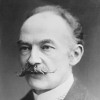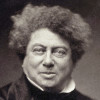“ Often she was angry with herself for what she regarded as a weakness. Her strong mind despised the poverty of ordinary love, insensible to the details which for tender souls make it the sweetest, the most delicate, and the most desirable of all pleasures. ”
Alexandre Dumas, La Reine Margot (1845). copy citation
| Author | Alexandre Dumas |
|---|---|
| Source | La Reine Margot |
| Topic | weakness poverty |
| Date | 1845 |
| Language | English |
| Reference | |
| Note | |
| Weblink | https://www.gutenberg.org/cache/epub/33609/pg33609-images.html |
Context
“Anxious to see Marguerite again, La Mole set himself busily to work to bring about the event which would make it possible for him to be with her; namely, the flight of the King of Navarre.
Marguerite on her part willingly gave herself up to the happiness of being loved with so pure a devotion. Often she was angry with herself for what she regarded as a weakness. Her strong mind despised the poverty of ordinary love, insensible to the details which for tender souls make it the sweetest, the most delicate, and the most desirable of all pleasures. So she felt that the days, if not happily filled, were at least happily ended. When, at about nine o'clock every evening, she stepped out on her balcony in a white dressing-gown, she perceived in the darkness of the quay a horseman whose hand was raised first to his lips, then to his heart.” source
Marguerite on her part willingly gave herself up to the happiness of being loved with so pure a devotion. Often she was angry with herself for what she regarded as a weakness. Her strong mind despised the poverty of ordinary love, insensible to the details which for tender souls make it the sweetest, the most delicate, and the most desirable of all pleasures. So she felt that the days, if not happily filled, were at least happily ended. When, at about nine o'clock every evening, she stepped out on her balcony in a white dressing-gown, she perceived in the darkness of the quay a horseman whose hand was raised first to his lips, then to his heart.” source



